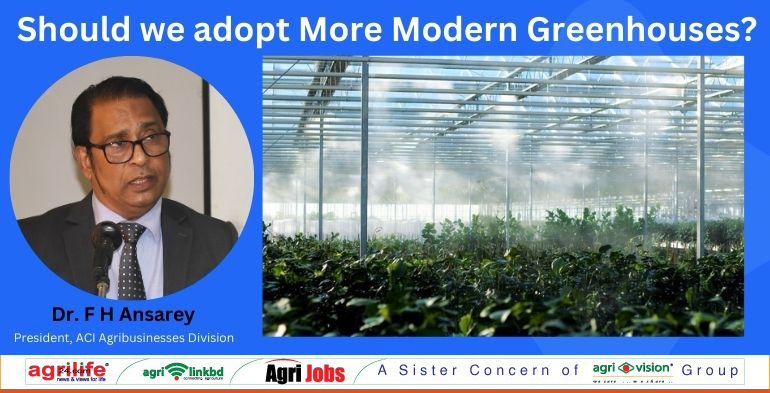
Dr. F H Ansarey: In recent decades, the greenhouse industry has evolved from small-scale research or aesthetic facilities (i.e. botanic gardens) to much larger-scale industrial facilities. Currently the global greenhouse market produces nearly US$350 billion in vegetables per year. The industry may compete directly with land-based conventional food production. In Bangladesh, greenhouses are very few in numbers and are mostly low-cost, low-tech in nature.
Considering the climate and ever-shrinking arable land of the country, we can adopt more modern greenhouses focusing on vegetable production and floriculture. The existing greenhouses in the country need structural improvements and adoption of smart sensors as well as controlling devices. For example, hydroponic cultivation of strawberry in greenhouses can be achieved with controlled environmental parameters like temperature, humidity and light intensity. Besides, the ideal condition can be created in a greenhouse with the correct covering and ventilation techniques.
However, smart and modern greenhouses need to be sustainable with reduce, reuse, and recycle policies. Efficient irrigation and fertilization with optimized energy usage helps to reduce losses. Year-long production is possible with almost zero disease and pest infestation which minimizes production risk and maximizes profits. Some study suggests that greenhouse-growing crops can produce 6-10 times more yield than growing them in open fields. Moreover, producing high-value export-quality crops in greenhouses is aligned with the Government’s export diversification policy. Proper policy and financing support can bolster greenhouse industry in Bangladesh within a short period of time.
Writer: President, ACI Agribusinesses Division





















